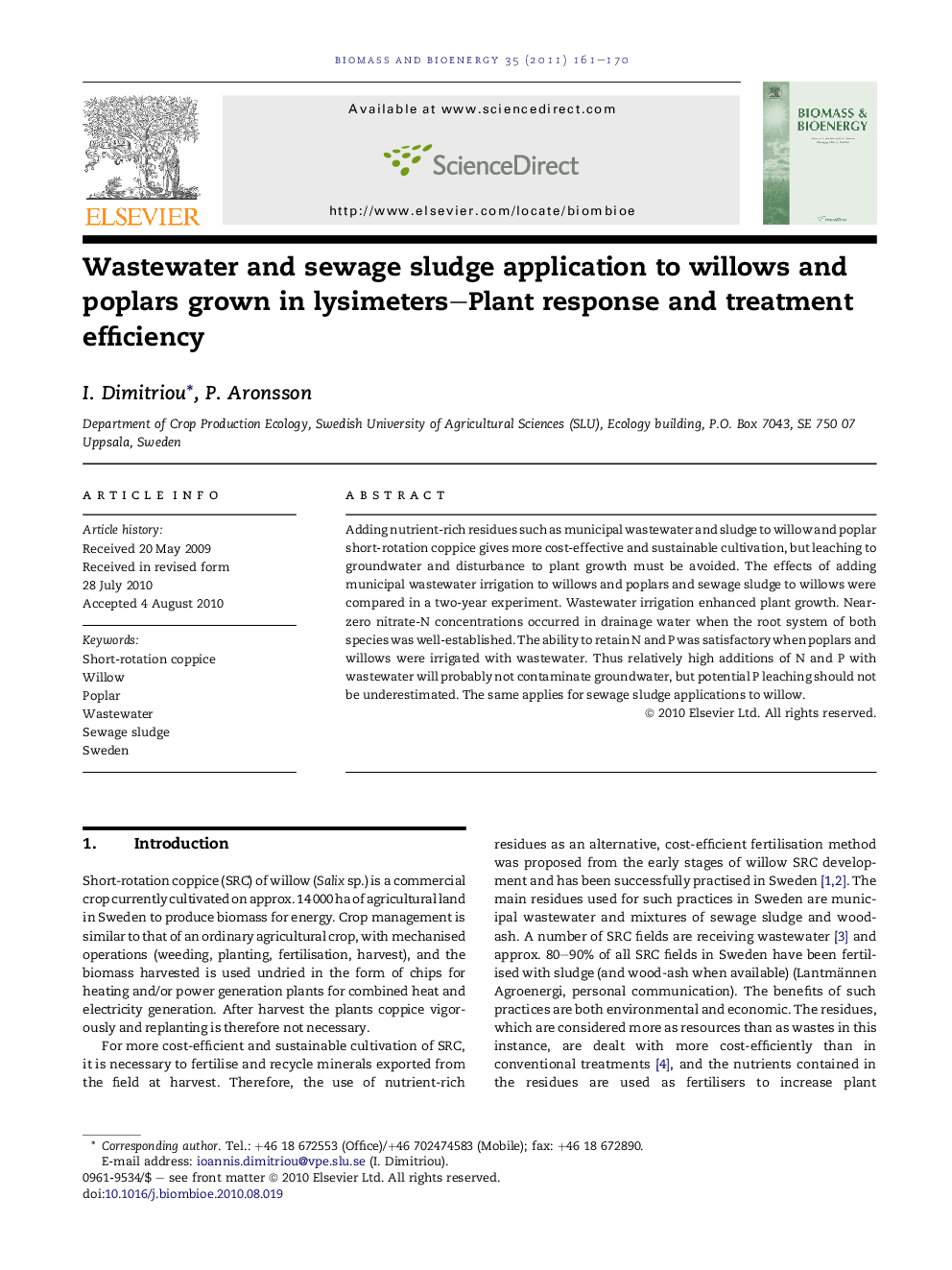| Article ID | Journal | Published Year | Pages | File Type |
|---|---|---|---|---|
| 678070 | Biomass and Bioenergy | 2011 | 10 Pages |
Abstract
Adding nutrient-rich residues such as municipal wastewater and sludge to willow and poplar short-rotation coppice gives more cost-effective and sustainable cultivation, but leaching to groundwater and disturbance to plant growth must be avoided. The effects of adding municipal wastewater irrigation to willows and poplars and sewage sludge to willows were compared in a two-year experiment. Wastewater irrigation enhanced plant growth. Near-zero nitrate-N concentrations occurred in drainage water when the root system of both species was well-established. The ability to retain N and P was satisfactory when poplars and willows were irrigated with wastewater. Thus relatively high additions of N and P with wastewater will probably not contaminate groundwater, but potential P leaching should not be underestimated. The same applies for sewage sludge applications to willow.
Related Topics
Physical Sciences and Engineering
Chemical Engineering
Process Chemistry and Technology
Authors
I. Dimitriou, P. Aronsson,
